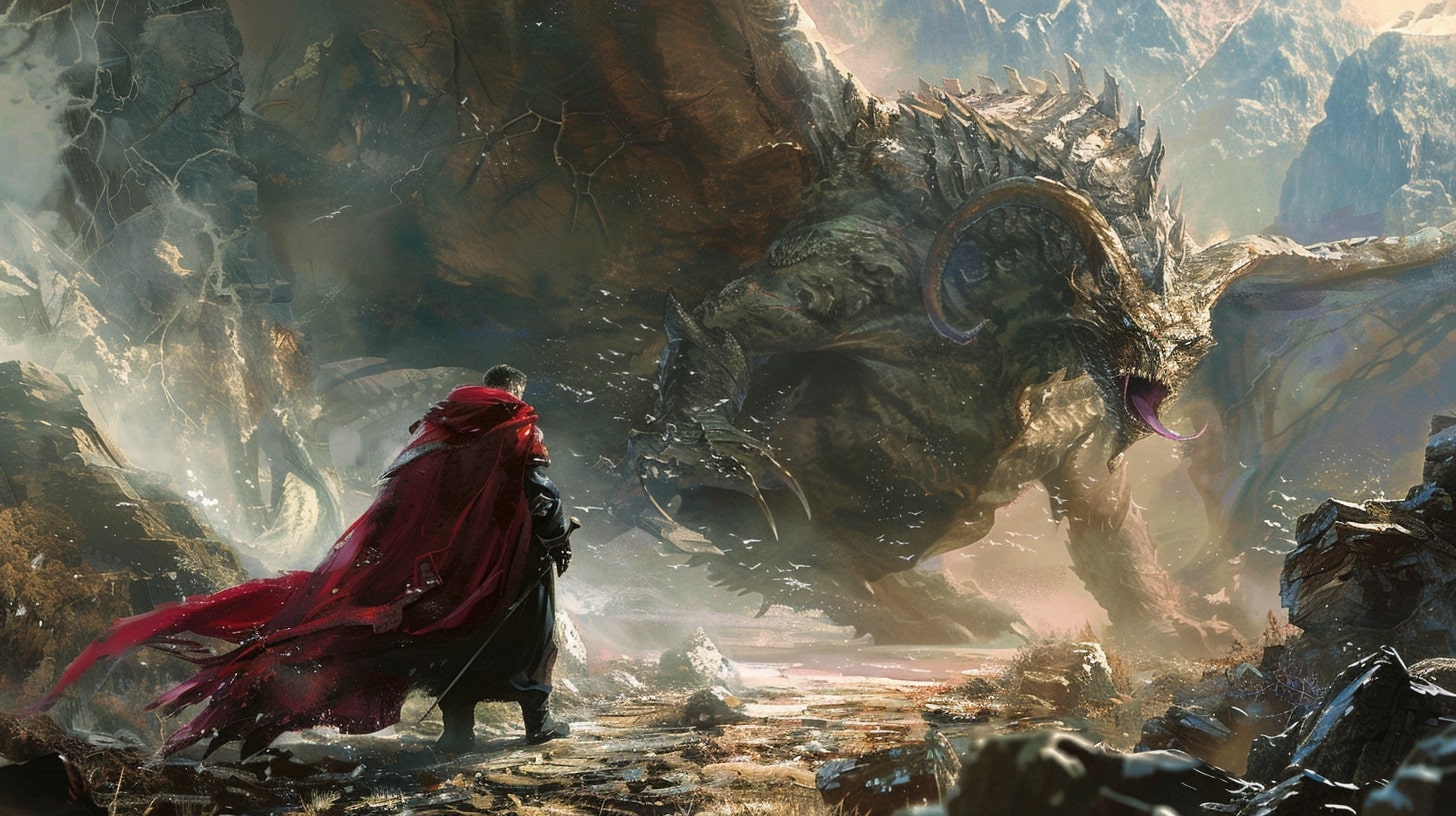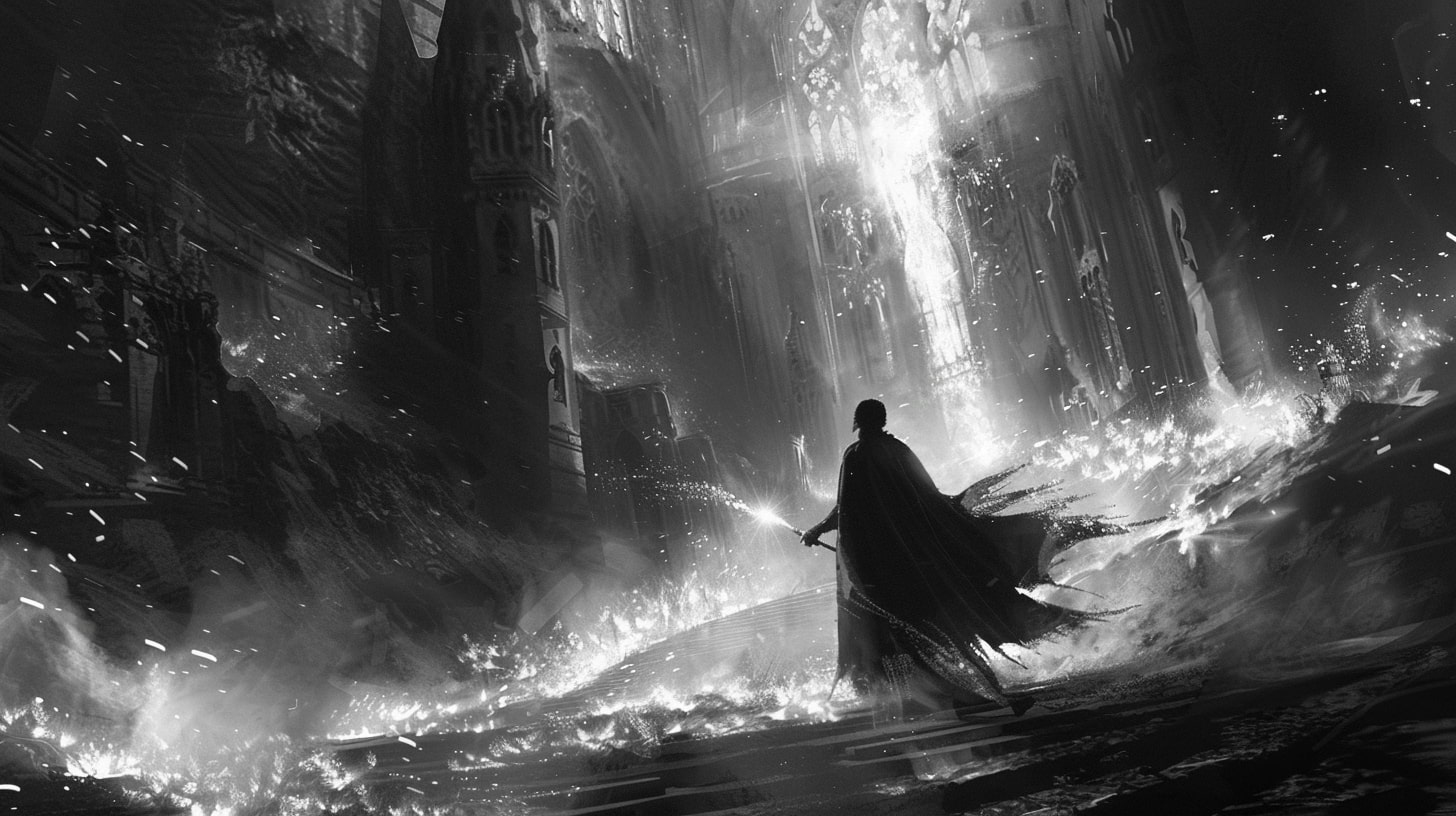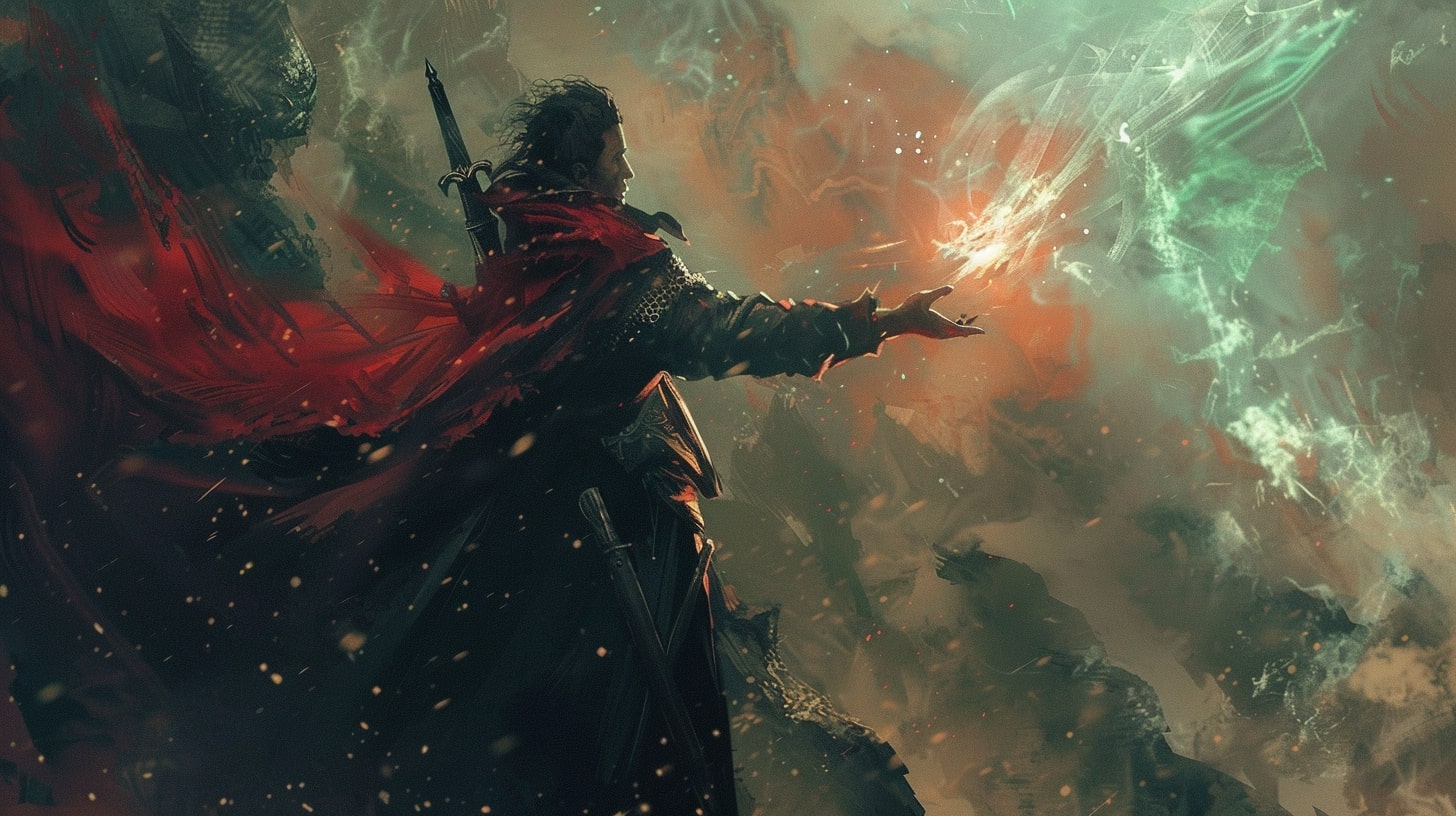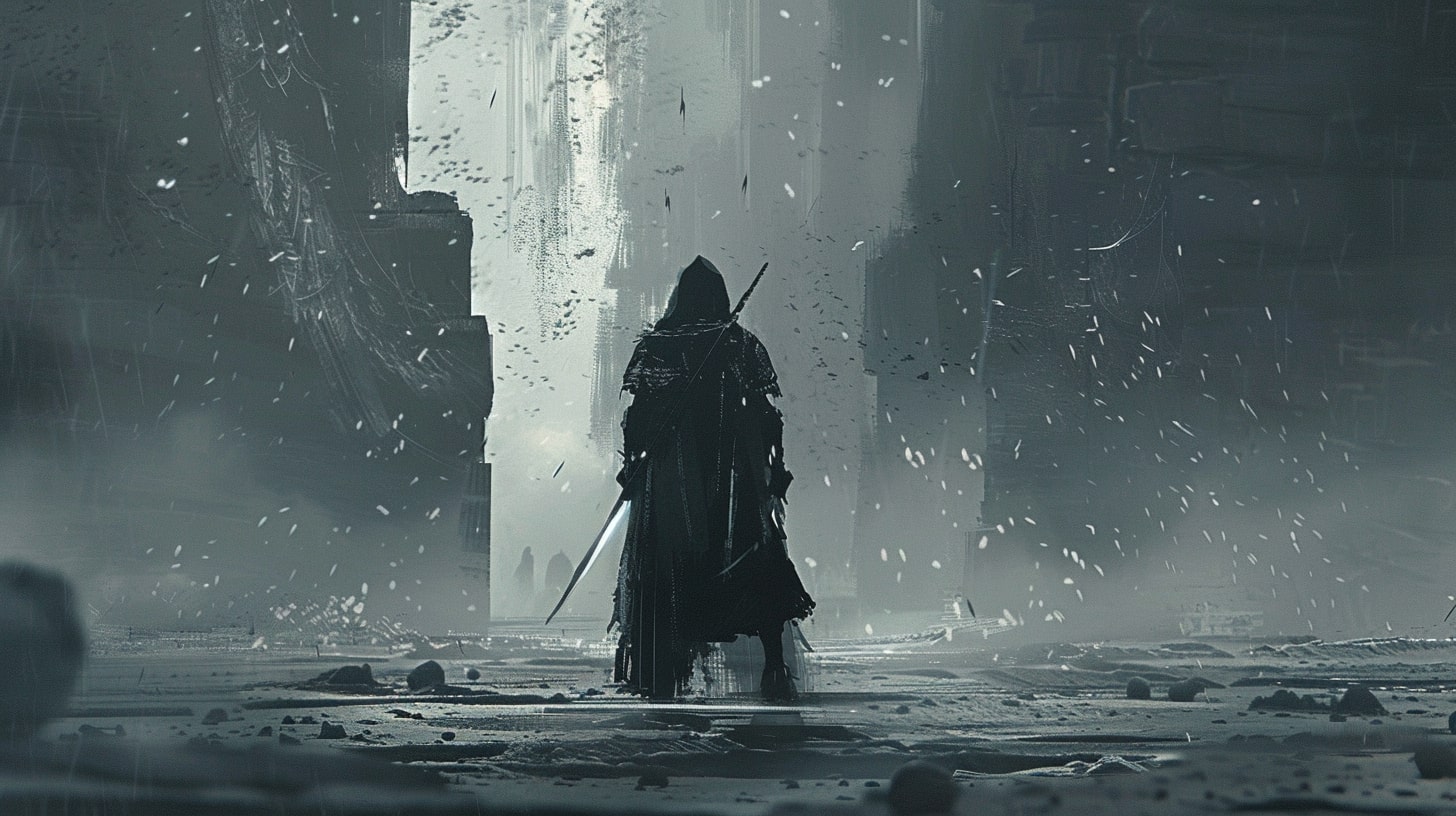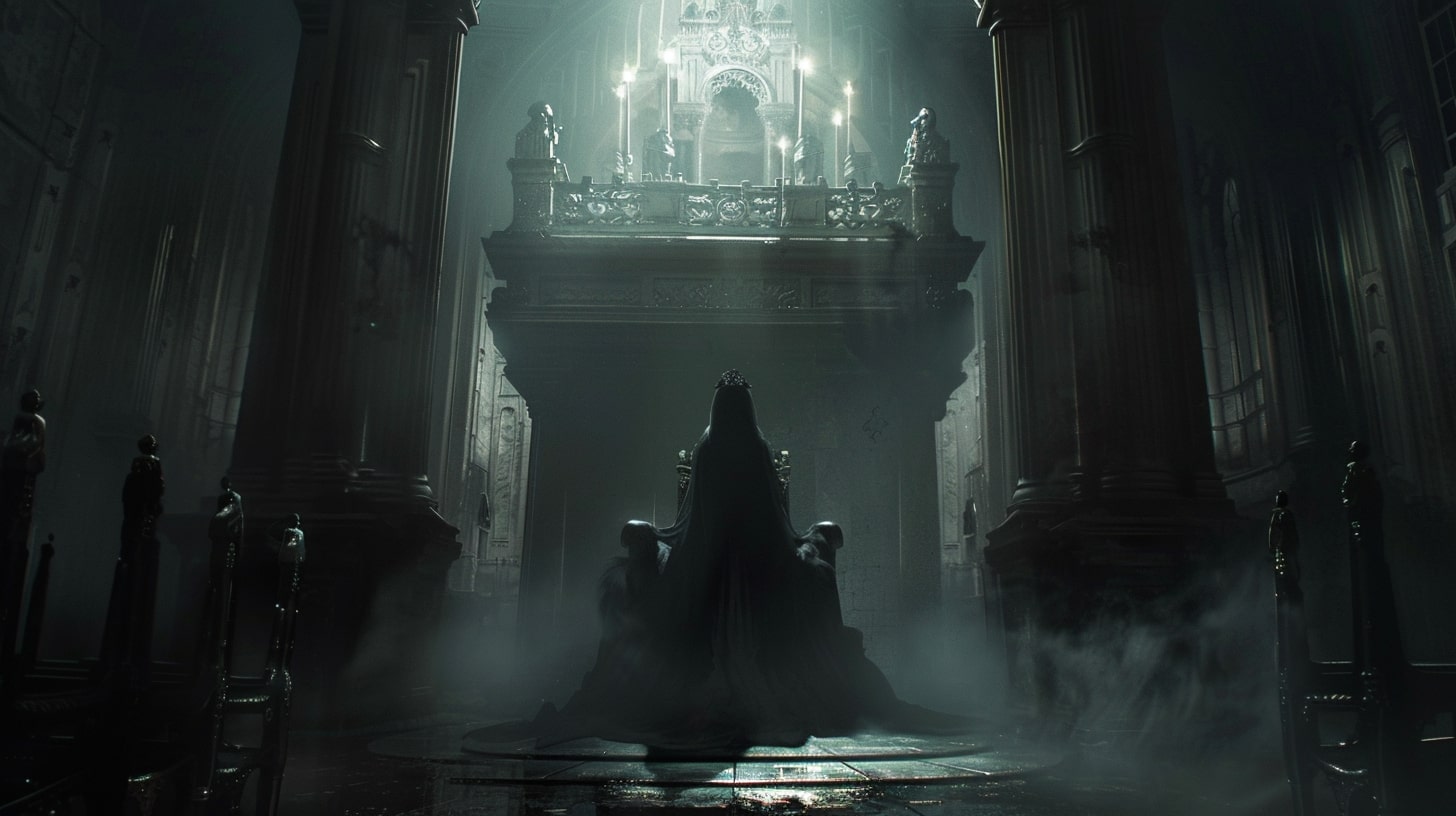The Art of Characterization
Welcome to the world of character development, where you have the power to breathe life into your fictional creations. Character development is a vital aspect of storytelling that allows readers to connect with your characters on a deeper level.
By diving into their personalities, motivations, and quirks, you can create memorable and relatable characters that will leave a lasting impression. In this guide, we are going to walk through some character development exercises to help you flesh out more memorable characters.
Why Character Development is Important
Character development is like adding seasoning to a dish - it enhances the flavor and makes it more enjoyable. Well-developed characters bring richness and depth to your story, making it more engaging for your readers. When readers can empathize with your characters, they become invested in their journey and eagerly turn the pages to see what happens next.
Through effective character development, you can create believable and multi-dimensional characters that feel like real people. By exploring their personality traits, backstory, and motivations, you can make your characters come alive on the page. Check out our article on character personality traits for more insights on creating well-rounded characters.
Character Development Exercises: Master Characterization
Now, let's dive into some fun exercises that will help you master the art of characterization. These exercises will allow you to explore different facets of your characters and gain a deeper understanding of who they are. Remember, the more you know about your characters, the more authentic and compelling they will be.
Exercise 1: The Interview
In this exercise, you'll imagine yourself as a talk show host, interviewing your character. Set the stage by creating a suitable environment for the interview. Craft a series of interview questions that will delve deep into your character's personality. By exploring their thoughts, emotions, and experiences, you'll uncover hidden layers and nuances. For inspiration, check out our article on character development prompts.
Exercise 2: Character Collage
Gather visual inspiration by creating a character collage. Collect images, photographs, and illustrations that represent your character's appearance, interests, and surroundings. Arrange these visuals into a collage and analyze the result for insights into your character's personality. This exercise will help you visualize your character and gain a deeper understanding of their world. For more ideas on character appearance, check out our article on character appearance and description.
Exercise 3: Character Swap
Pair up your characters and role-play as the other character. Step into their shoes and explore the world from their perspective. This exercise will allow you to see your characters from a different angle, uncovering new motivations and perspectives. By understanding your characters' strengths and weaknesses, you can create more compelling and relatable characters. Check out our article on character strengths and weaknesses for more insights.
Exercise 4: Character Diary
Immerse yourself in your character's world by writing in their voice. Create daily entries in a character diary, where your character reflects on their thoughts, emotions, and experiences. This exercise will give you valuable insights into your character's inner workings, allowing you to create more authentic and believable characters. For more guidance, check out our article on character development in writing.
Exercise 5: Character Quiz
Craft a personality-based quiz for your character, consisting of multiple-choice or open-ended questions. Analyze the quiz results to uncover your character's traits and motivations. This exercise will help you delve deeper into your character's psyche and understand what drives them. For ideas on crafting personality-based questions, check out our article on character motivation in writing.
Exercise 6: Character Relationships
Map out the interactions between your characters and explore the dynamics and conflicts that arise. By developing well-rounded characters through their relationships, you can create more realistic and compelling storylines. For insights on creating meaningful character relationships, check out our article on character relationships and dynamics.
By embarking on these fun exercises, you'll master the art of characterization and create characters that leap off the page. Remember, the key to effective character development is to delve deep, explore their inner worlds, and bring them to life through your storytelling.

Exercise 1: The Interview
Ready to dive into the world of character development? Let's kick things off with a fun exercise called The Interview. In this exercise, you'll have the chance to get to know your character on a deeper level by asking them a series of interview questions.
Setting the Stage
Find a quiet and comfortable space where you can imagine yourself as an interviewer. Picture a cozy office or a talk show set - whatever setting sparks your creativity. Get into the mindset of a curious and engaging interviewer, ready to uncover the depths of your character's personality.
Crafting Interview Questions
Now, it's time to come up with a set of interview questions that will help you dig deep into your character's personality. Consider asking questions about their background, motivations, fears, and desires. Think about how their past experiences have shaped them, and what drives them forward. Here are a few examples to get you started:
- If your character could have any superpower, what would it be and why?
- What is your character's biggest fear, and how do they cope with it?
- Describe a significant event from your character's past that has influenced who they are today.
- What are your character's goals and aspirations? How do they plan to achieve them?
- How does your character handle conflict? Are they more inclined to confront it head-on or seek resolution through other means?
Feel free to tailor the questions to fit your specific character and story. The more detailed and specific your questions are, the better insights you'll gain into your character's psyche.
Digging Deep into Your Character's Personality
Now that you have your questions ready, it's time to imagine your character's responses. Put yourself in their shoes and answer the questions from their perspective. Imagine their voice, their mannerisms, and their unique way of expressing themselves. This exercise allows you to explore the depths of your character's personality and gain a deeper understanding of who they are.
As you go through the interview process, take notes on your character's responses. These insights will help you shape their thoughts, emotions, and experiences throughout your story. Remember, you can always revisit this exercise whenever you need to delve deeper into your character's personality.
By conducting The Interview with your character, you'll embark on a journey of discovery and gain valuable insights that will bring your character to life. So grab your imaginary microphone and dive into the fascinating world of your character's mind. Happy interviewing!
For more tips on character development and other writing techniques, check out our articles on developing complex characters, character-driven storytelling, and character relationships and dynamics.

Exercise 2: Character Collage
Ready to get creative? The character collage exercise is a fun and visual way to gather inspiration and gain insights into your characters. Let's dive in!
Gathering Visual Inspiration
To begin, gather a variety of magazines, newspapers, or even printouts of images from the internet. Look for pictures that resonate with your character's personality, interests, and background. Don't worry about finding exact matches; focus on capturing the essence of your character through visuals.
Creating a Collage
Once you have your collection of images, it's time to create the collage. Grab a large piece of paper, poster board, or even a virtual canvas if you prefer digital creation. Arrange the images in a way that feels visually appealing and represents different aspects of your character's life. You can cut out the images and glue them onto the paper or digitally arrange them using graphic design software.
As you create the collage, feel free to add additional elements like drawings, symbols, or words that further convey your character's traits and experiences. Let your imagination run wild!
Analyzing the Collage for Insights
Now comes the fun part: analyzing the collage for insights into your character. Take a step back and observe the visual composition you've created. Pay attention to the recurring themes, colors, and symbols that emerge. What do they reveal about your character's personality, desires, and conflicts?
For example, if you notice a consistent presence of nature-related images, it might suggest that your character is deeply connected to the environment or finds solace in natural settings. If there are images of musical instruments, it could indicate a passion for music or a career in the arts.
By analyzing the collage, you can uncover hidden facets of your character and gain a deeper understanding of their motivations and aspirations. Use the insights gained from this exercise to further develop your character and incorporate their unique traits into your storytelling.
Remember, the character collage exercise is just one of many tools you can use to enhance your character development process. You can explore more techniques, prompts, and ideas in our articles on character development prompts and character building techniques.
So grab those scissors and glue, or open up your favorite graphic design software, and let your creativity flow. Your character collage will serve as a visual reminder of the vibrant and multi-dimensional character you're bringing to life on the page.

Exercise 3: Character Swap
Ready for a fun and mind-bending exercise to shake up your character development process? It's time to dive into the world of character swap! This exercise allows you to pair up your characters and step into their shoes to gain new perspectives and motivations.
Pairing Up Characters
Start by selecting two characters from your story. It could be your protagonist and antagonist, two supporting characters, or any combination that intrigues you. The goal is to choose characters with distinct personalities, backgrounds, and goals. This way, the character swap exercise will yield the most interesting insights.
Role-Playing as the Other Character
Once you have your character pair, it's time to role-play! Take on the persona of one character and imagine how they would react and make decisions in the situations faced by the other character. This exercise allows you to explore different ways of thinking, speaking, and acting, which can lead to surprising discoveries about your characters' motivations and behaviors.
As you embody the other character, pay attention to their unique perspectives, values, and thought processes. How does this character's background and experiences shape their reactions? How do they approach challenges and conflicts differently from their counterpart? By immersing yourself in their world, you can truly understand the depth of your characters.
Exploring New Perspectives and Motivations
Through character swap, you'll gain fresh insights into your characters' inner workings. By stepping into their shoes, you can understand why they make certain choices and how their motivations drive the plot forward. This exercise helps you dig deeper into their personalities and make them more dynamic and relatable.
As you explore new perspectives and motivations, consider how the character swap can impact the overall story. Does it open up new possibilities for conflict or resolution? Does it reveal hidden connections or unexpected alliances? Embrace the creative possibilities that arise from this exercise and use them to enhance your storytelling.
Character swap is just one of the many exercises you can use to master the art of characterization. Each exercise provides unique insights into your characters, helping you create well-rounded and compelling individuals. So, grab a pen and paper, and let your characters take on a whole new life through the power of role-playing.
Continue your journey of character development with other exercises like the Character Diary or the Character Quiz. And remember, the more you understand your characters, the more they will come alive on the page. Happy character exploring!
Note: Looking for more tips and techniques on character development? Check out our articles on character development in worldbuilding, character relationships and dynamics, and character growth and transformation.
Exercise 4: Character Diary
Ready to dive deep into your character's inner world? Grab your pen and get ready for some intimate character exploration with the Character Diary exercise. This exercise allows you to step into your character's shoes and experience the world from their perspective.
Writing in Your Character's Voice
To begin, imagine yourself as your character and start writing daily diary entries in their voice. Let your character express their thoughts, emotions, and experiences in their own unique way.
Use their language, vocabulary, and mannerisms to bring their voice to life. This exercise not only helps you understand your character better but also enhances your ability to write authentic dialogue and internal monologues.
Daily Entries and Reflections
Encourage yourself to write regular diary entries for your character. Set a specific time each day to reflect on their experiences, thoughts, and emotions. Treat it as a personal journal where they can share their triumphs, frustrations, and desires. As you continue writing, you'll start to uncover new layers of your character's personality, motivations, and conflicts.
Insights into Their Thoughts, Emotions, and Experiences
Through the character diary exercise, you gain valuable insights into your character's inner world. Pay attention to their recurring thoughts, the way they process emotions, and their reactions to different situations. This exercise helps you delve into the psychological development of your character and understand their motivations on a deeper level.
By immersing yourself in your character's diary, you can discover hidden aspects of their personality, such as their fears, dreams, and unresolved conflicts. These insights can be invaluable when creating a fully realized and relatable character.
Remember to check out our article on character development prompts for additional inspiration to spark your character diary entries.
So grab that pen and let your character's thoughts flow onto the pages of their diary. Explore their world, experience their joys and challenges, and watch as your character comes to life in your imagination. Happy writing!
Exercise 5: Character Quiz
Inject some fun into your character development process with a character quiz! This exercise allows you to delve deeper into your characters' personalities by crafting personality-based questions and analyzing the quiz results for valuable insights. So, grab your imaginary pen and paper, and let's get quizzical!
Crafting Personality-based Questions
To create a character quiz, think about the traits, quirks, and preferences of your character. Craft a series of multiple-choice or open-ended questions that relate to their personality. These questions can cover a range of topics, such as their likes and dislikes, fears and aspirations, or even their favorite activities or foods.
For example, if your character is adventurous, you could ask them what their dream travel destination would be. If they are introverted, you might inquire about their preferred way to spend a quiet evening. The key is to tailor the questions to reveal specific aspects of your character's personality.
Multiple Choice or Open-ended Format
When designing your character quiz, you can choose between a multiple-choice or open-ended format. Multiple-choice questions provide a set of predefined answers for your character to choose from, while open-ended questions allow them to provide their own unique responses.
Multiple-choice questions are ideal for exploring specific traits or preferences. They provide a structured format that can help you narrow down your character's traits and make comparisons between different characters. On the other hand, open-ended questions offer more freedom for your character to express themselves and reveal unexpected insights. This format can be particularly useful for exploring their thoughts, motivations, or past experiences.
Analyzing Quiz Results for Character Traits
Once you've crafted your character quiz and your character has completed it (in your imagination, of course), it's time to analyze the results. Look for patterns or recurring themes in their answers. Are there specific traits or preferences that stand out? Pay attention to the choices they made and the explanations they provided in open-ended questions. These can offer valuable clues about their motivations, values, and backstory.
Consider creating a table to organize your findings. In the table, list the traits or preferences discovered through the quiz and add a brief description or explanation for each. This visual representation can help you better understand your character and make it easier to refer back to their unique characteristics as you write.
Remember, the character quiz is just one piece of the puzzle when it comes to character development. Combine it with other exercises, such as crafting a character collage or writing in your character's voice, to create a well-rounded and multi-dimensional character.
So go ahead, have some fun, and quiz your character to unlock new insights about who they are. Happy character development!
Exercise 6: Character Relationships
Developing well-rounded characters goes beyond individual traits and personalities. Character relationships play a crucial role in shaping their development and adding depth to your story. In this exercise, you'll explore the dynamics, conflicts, and connections between your characters to create more compelling and realistic interactions.
Mapping Out Interactions
Start by mapping out the various interactions between your characters. Consider their roles in the story, their connections, and the frequency of their interactions. Visualize this by creating a diagram or chart that illustrates the relationships between your characters. This will help you identify key relationships and potential conflicts that can drive your story forward.
| Character | Relationship |
|---|---|
| Protagonist | Sibling |
| Antagonist | Mentor |
| Sidekick | Best Friend |
| Love Interest | Colleague |
Exploring Dynamics and Conflict
Once you have mapped out the relationships, delve deeper into the dynamics between the characters. Explore how their personalities, goals, and backgrounds influence their interactions. Consider the potential conflicts and tensions that may arise due to differences in values, beliefs, or objectives.
For example, the protagonist and the antagonist may have contrasting worldviews, leading to intense conflicts throughout the story. The sidekick and the protagonist's best friend may provide comic relief or serve as a source of support during challenging times. These dynamics and conflicts contribute to the richness of your story and the growth of your characters.
Developing Well-rounded Characters through Relationships
Character relationships provide opportunities for growth, transformation, and the exploration of new perspectives. By understanding how your characters interact and affect each other, you can develop more well-rounded and compelling individuals.
For instance, the protagonist's relationship with the antagonist can push them to confront their fears and test their values. The love interest may challenge the protagonist's beliefs, leading to personal growth and self-discovery. These relationships provide opportunities for character development and create engaging story arcs.
Remember to consider the impact of these relationships on the overall plot and how they contribute to the thematic elements of your story. By weaving complex and authentic character relationships into your narrative, you can create a more immersive and captivating reading experience.
As you explore the intricacies of character relationships, keep in mind that it's crucial to maintain consistency and authenticity in their interactions. Each relationship should have its own unique dynamics, conflicts, and resolutions. By paying attention to these details, you can breathe life into your characters and make their journeys more relatable to your readers.
Continue to discover more about character development with our article on character relationships and dynamics.









